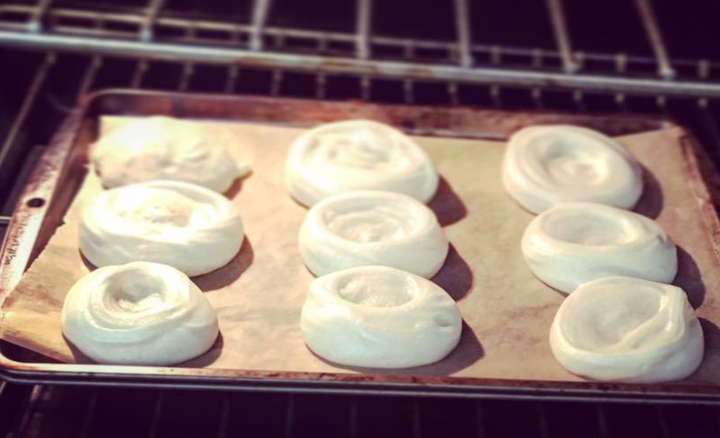
The brainchild of industrial designer Josh Treuhaft and chef Pesha Perslweig, the Salvage Supperclub is looking to cut down on the more than 133 billion pounds of food wasted each and every year in the United States alone. Perhaps the notion of eating with our eyes first has come with some rather wasteful side effects — after all, can your stomach really tell the difference between a bruised tomato and an aesthetically flawless one? If you ask the folks at Salvage, the answer is a resounding no.
The entire experience at Salvage Supperclub is dumpster-centric. Not only are you eating food made with ingredients that would’ve otherwise been tossed, you’re eating in an actual dumpster. But don’t worry — when Sarah Henry of NPR checked out one of these dinners in San Francisco, she described the dumpster as “simply but tastefully decked out: glass tea lights, long wooden benches, bar towel napkins.” Which is to say, not your average trash can.
It’s certainly not your average trash meal, either. The sample menu on Salvage’s website speaks to an heirloom tomato gazpacho, summer sorbets made with pineapple core and bruised apple reduction with lavender, a bruised beet tartare made with a creamy cashew cheese and served on a bed of rescued radish, and something called an “office coffee butter and recycled rice bread,” which sounds strangely delicious. It’s “fresh butter whipped with an end-of-the-day office coffee reduction. Served on freshly baked bread with yesterday’s rice.”
And based on people’s willingness to pay $125 for a meal at this dumpster dining den, it would seem that it doesn’t just sound good — it tastes good, too. “The idea behind this multicourse, veg-forward tasting menu is for eaters to see the incredible potential many of us fail to see in our food,” Treuhaft told NPR. “I want to engage people and get them excited about food waste prevention, so we send less food to the landfill or compost. The goal here is to broaden the scope of what is edible.”
For private chef Perlsweig, the goal of her supper club is a personal one, too. Having grown up in a household that frowned upon any kind of wasted food (her grandfather lived through the Great Depression), Perlsweig said, “I hope my guests come away from my dinners with a new outlook on how they’re using and not using the food in their kitchens.”
If you’re looking to score an invite to the next one of these Salvage Suppers, just fill out this form. The team has already hosted events in Brooklyn, Berkeley, and the Bay Area. So who knows — your next big dinner party just may come out of a dumpster.


